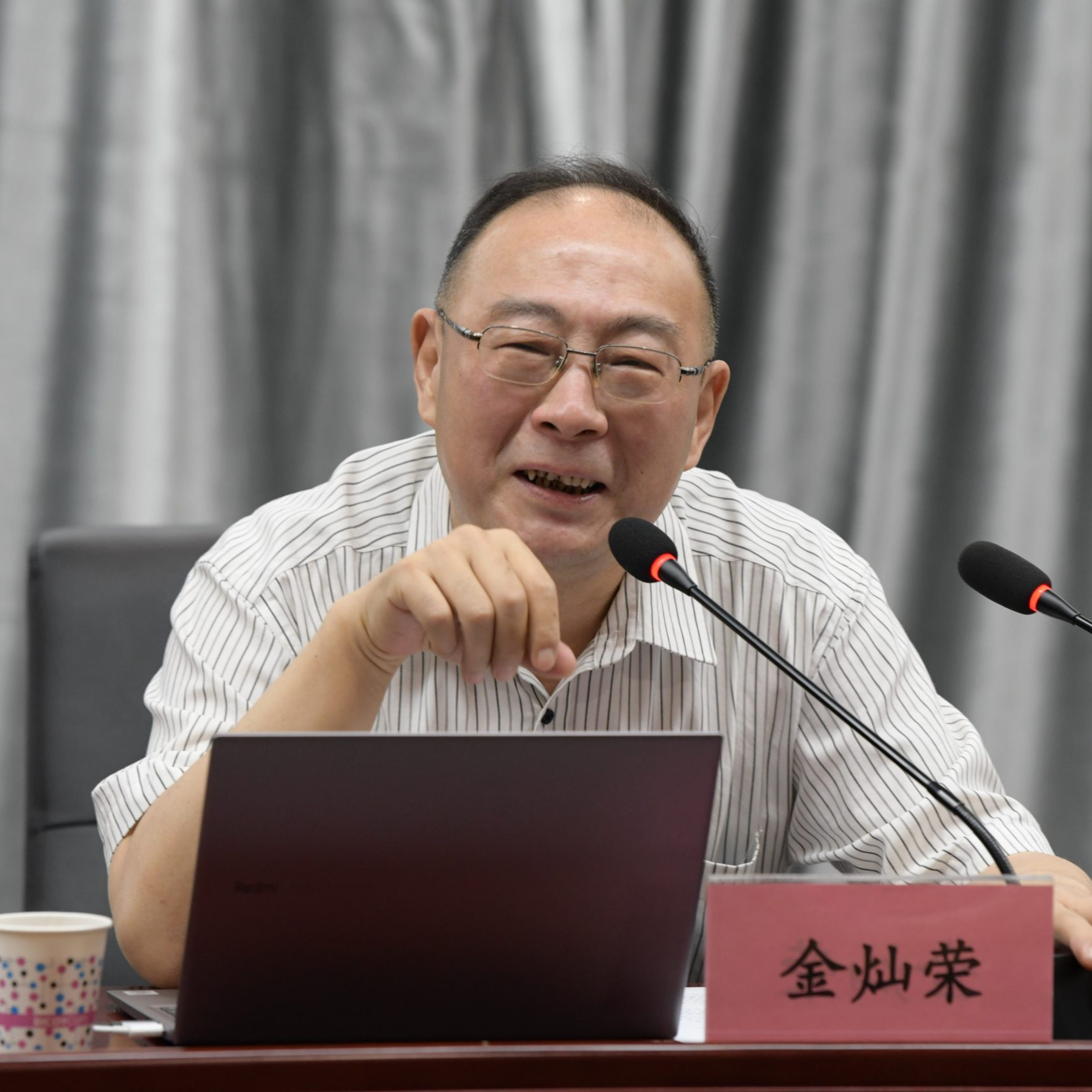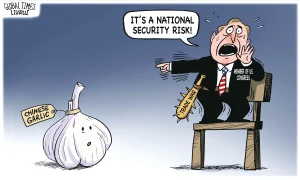China’s Unification Process Has Already Begun
Over the past three days, the Shangri-La Dialogue has been held in Singapore. This forum, established in 2002, focuses on security issues in the Asia-Pacific region and has become very influential. On the first day of this year’s forum, May 31st, both defense ministers from China and the US met with each other, many people observed that the Taiwan issue was a prominent and hotly debated topic during the discussions between the two defense ministers.
In addition, Dong Jun, China’s Minister of National Defense said “Whoever dares to separate Taiwan from China will certainly be doomed and bring about their own destruction,” attracting great attention.
It’s worth mentioning that during the inauguration speech of Taiwan’s leader Lai Ching-te on May 20, the idea of “Taiwan independence” was presented in an extraordinarily explicit manner, which China’s Taiwan Affairs Office defined as the “Taiwan Independence Manifesto.” It is common knowledge that Lai’s remarks this time are approved by Americans, suggesting that the United States is ready to actively contain China by manipulating Taiwan. Previously, many believed that the US treated Taiwan as a card to be played to a limited extent but given the current posture, it seems prepared for a direct confrontation with China, which is more dangerous. As a result, China had to respond strongly through the “Joint Sword-2024A” military drills.
 Lai Ching-te
Lai Ching-te
Moreover, some groups of US congressmen visited Taiwan several times without authorization arrogantly. They bet that China won’t deal with them using military approaches. This assumption is somewhat true but underestimates the Chinese government’s resolve to achieve complete unification. For China, the Taiwan Question touches upon the most critical core interests — it is the “line in the sand”. That’s why China sends clear signals and warnings continuously, including conducting military exercises around Taiwan and engaging in diplomatic negotiations.
At the Taiwan Affairs Office press conference on May 29, a reporter from Taiwan’s “China Times” asked spokesperson Zhu Fenglian “Is there no going back for cross-strait relations?” Zhu replied, “The question of ‘no going back’ is a false proposition. Cross-strait relations have been continuously moving forward, towards the direction of unification.” This statement revealed quite a lot of information.
Personally, I believe that China’s unification process has already begun. However, the central government has considered unification by force as a choice in the toolbox by far. Over the years, there have been consistent official declarations of “We are patient, willing to strive for the prospect of peaceful unification with utmost sincerity and effort.”
However, now that the United States has completely burned its bridges and openly manipulated Lai Ching-te to test China’s bottom line, the likelihood of a regional conflict has greatly increased. China must prepare for the possibility of unification by non-peaceful means.
Taiwan is an integral part of China, with historical roots dating back many years. If you are interested in Chinese culture, it is important to know the story of the Three Kingdoms, known as “San Guo Yan Yi” in Chinese. One of the kingdoms, Dong Wu, was led by Sun Quan. During that time, Sun Quan dispatched his general, Wei Wen, to Taiwan and asserted sovereignty over the island. This claim of sovereignty can be traced back nearly 2,000 years. From the Chinese perspective, Taiwan has been considered part of China since Sun Quan sent Wei Wen to Taiwan. However, in modern history, Taiwan was temporarily separated from China when the Qing dynasty was defeated by the Japanese Empire in 1894 during the Jia Wu war. After the end of World War II, Taiwan returned to China and regained its status as part of China.
There is a document called the Cairo Declaration, signed by three world leaders at the time: Franklin Roosevelt, the President of the United States; Winston Churchill of Great Britain; and Mr. Chiang Kai-shek, the leader of the Republic of China at that time. According to the Cairo Declaration, Japan must return all the territory they seized from China. This document holds great importance in international law. Two years later, in the famous Boston Protocol, the stance of the Cairo Declaration was fully accepted. The Boston Protocol demanded that the Japanese Empire return all the territory, including Taiwan, back to China. On August 15th, 1945, the Emperor of Japan fully accepted the requirements of the Boston Protocol.
In 1950, Taiwan separated from mainland China, not due to invasion or the impact of international law, but because of the civil war. Between 1946 and 1949, China faced a tragic situation. The two major parties, the Communist Party of China and the Nationalist Party of China, engaged in a fierce conflict, resulting in a civil war. As a result, the Nationalist Party, also known as the Kuomintang, fled to Taiwan, leading to the ongoing separation between Taiwan and mainland China.
Essentially, the current separation between Taiwan and mainland China is the outcome of the civil war and the actions of both sides. When the Kuomintang arrived in Taiwan, both sides claimed to represent the entirety of China. However, in recent years, with the Democratic Progressive Party (DPP) coming into power in Taiwan, there has been a shift in political position. The DPP has pursued legal separation of Taiwan from mainland China, which is viewed unfavorably from Beijing’s perspective.
That’s why the relations across the Taiwan Strait have become increasingly unstable in recent years. However, Beijing’s position remains focused on peaceful unification while emphasizing China’s ultimate goal of reunification. Despite China’s evident military advantage, Beijing still prioritizes peaceful means to achieve reunification. This is the main reason why, despite tensions in cross-strait relations, the situation around Taiwan remains relatively peaceful.
However, the recent political change in Taipei, with the rise of pro-separatist leaders like Lai Ching-te, has added complexity to the situation. While the issue of Taiwan is essentially an internal matter resulting from the civil war, the involvement of the United States in China’s civil war, particularly its support for the Nationalist Party of China, has complicated matters. After the Nationalist Party fled to Taiwan, the United States has been providing extensive support, including military assistance. This historical involvement by the United States further complicates the issue. Legally speaking, Taiwan’s status is an internal affair of China, but due to these historical reasons, the United States has become a party involved in this complex game.
On the U.S. side, there is a significant portion of the strategy that seeks to leverage Taiwan against mainland China. Despite claiming loyalty to the “One China” policy, the actions of the United States betray their promise as they encourage Taiwan’s separation. The new situation in Taiwan has compelled Beijing to seriously consider non-peaceful means of unification, making the situation much more dangerous than before.
As we all know, this year marks the general election year in the United States. Compared to previous elections, the political landscape has become increasingly contentious. The Democrats have legally sued former President Donald Trump, putting him in a precarious position. On the other side, the Republican supporters have become increasingly enthusiastic in their support for Trump. The deepening partisan divide has raised concerns about whether this election will conclude peacefully. The Chinese perspective sees little substantial difference between the two candidates, and the same can be said for their stance on Taiwan. Both candidates are likely to leverage Taiwan as a political card, forcing Beijing to make a decision in the near future. Personally, I believe that within five years, the Taiwan issue will be resolved. China will not be stopped, and we are prepared to utilize military force to achieve our goals. Consequently, there will be no “One Country, Two Systems” arrangement like in Hong Kong; instead, there will be one state with one system. People in Taiwan reject the “One Country, Two Systems” arrangement, finally, they can only face in one state, one system. I think that will be the future end.




